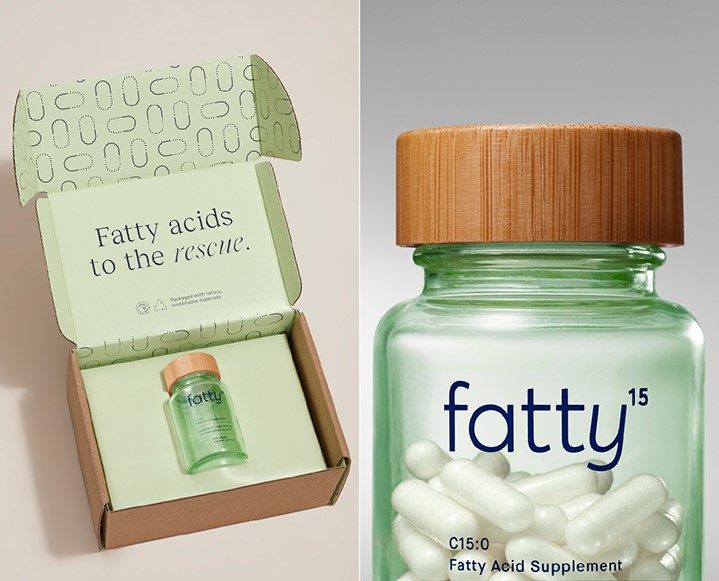Did you know that humans are the only living species on earth that can cry? This fact, according to Dr. Sadeghi, indicates that crying has a very special purpose. While as a society we’ve been socialized to see tears as a sign of weakness, the act has an essential function and the benefits of crying reach deep.
Last month we launched our Feminine Consciousness series with integrative L.A. doctor, Dr. Habib Sadeghi and co-authors of The Feminine Revolution: 21 Ways to Ignite the Power of Your Femininity for a Brighter Life and a Better World, Amy Stanton and Catherine Connors. Dr. Habib and Amy are diving into the mind-body significance of classically feminine qualities that are often framed as weaknesses (especially for women in business!), but can actually help women develop their strengths in a profound way.
We’re discussing the benefits of crying and why letting yourself feel all the feels can be a source of great strength. Gather your tissues and let it all go. If you stumble upon something surprising, inspiring or the like, take it to our new private Facebook group to discuss in depth with our community!
What comes to mind when you hear the words "too emotional"?
Amy: A hysterical, weeping woman. And she is rarely an inspirational character in our minds. From a young age we’re conditioned not to cry (in fact, don’t cry may have been the first words that many of us ever heard out of our mother’s mouth!). As someone who is a crier and comes from a family of criers, I’ve always been pretty comfortable with crying. But most people are totally uncomfortable with crying, and that makes us uncomfortable doing it.
We’ve been conditioned to believe that crying is a sign of weakness. We fear people will think we’re fragile or overly emotional. At the office, crying is seen as particularly problematic. We’re afraid people will think we can’t handle our jobs or that we’re easily overwhelmed.
But the stigma of crying translates into personal relationships as well — we don’t want to seem too needy, overly sensitive and sometimes we’re even afraid of showing how much we care. I spent many years and certainly the early part of my career holding back tears (happy, sad, angry, you name it) because they didn’t seem welcome. And that translated into personal relationships — suddenly I had an armor and was holding back my emotions, thinking that was the right thing to do — I feared maybe I would be “too much” if I showed this emotional side of myself.
What are the emotional benefits of crying?
Dr. Sadeghi: The interesting thing about crying is that humans are the only living creatures on earth that can do it. Some might think dogs cry when they whimper, but that’s not what’s actually happening. So if only humans can cry, it must serve a very special purpose.
Crying is our emotional reset button. It allows us to purge all the stress from the fear, anger or helplessness we’re feeling and bring the mind and body back into balance. Feeling better physically and clearer mentally, we can approach whatever it is that’s bothering us from a more lucid and healthy frame of mind. We also allow our body to get out of the fight-or-flight response and return to normal functioning. That means better immunity and better health.
Amy: If we reframe the way we think about crying by allowing ourselves these “human moments” and using them as a way to connect with the person/people on the receiving end, this can have meaningful emotional benefits. We can use the crying to help communicate our feelings and, as a result, be better understood by those around us. This, in turn, helps us deepen our relationships and, importantly, avoid unnecessary misunderstandings. And believe it or not, if we take away the stigma of crying and look at it as human, real and vulnerable (in a good way!) we may find ourselves crying less.
What are the physical benefits of crying?
Dr. Sadeghi: Although we’re usually upset when we cry, the act of crying releases “feel good” hormones that reduce physical pain. It also helps keep the eyes healthy and free from bacteria. Tears contain a fluid known as lysozyme that has antimicrobial properties so powerful it can kill 95% of all bacteria in five to ten minutes. Crying also lowers blood pressure, and studies show it helps people sleep more soundly. Tears, made by the lacrimal gland, also make vision clearer by lubricating the eyeballs and eyelids.
What are the repercussions of suppressing crying?
Dr. Sadeghi: Suppressing crying is suppressing emotion that urgently needs to be expressed, emotion so strong that it can’t be expressed in words. It’s like putting a cork in a bottle while increasing pressure inside and pretending it’s not going to explode eventually. In the case of long-term emotional suppression the explosion can happen outwardly, causing us to take uncharacteristic actions that we greatly regret later.
Most often, however, the explosion happens inwardly as a disease. Suppressing emotions by not crying generates an enormous amount of stress within the body. Stress has been identified as a leading factor in all major disease processes. Unresolved emotions like anger, resentment, jealousy, guilt and fear aren’t just ethereal notions that exist in our head. Every emotion we feel generates a physiological effect. It changes the body’s chemistry and, by association, its functioning in thousands of different ways. These changes happen moment-to-moment based on what we’re feeling. To think and feel is to practice biochemistry.
The danger with the intense stress generated by negative emotions is that it triggers the body’s fight-or-flight response. It tricks the body into thinking it’s in immediate physical danger even though it’s not. Under those circumstances, the body suppresses or shuts down all processes not absolutely necessary for helping us fight the threat (that’s not really there) or run away to safety. So it suppresses biological processes like digestion, cellular regeneration, detoxification and immune function, all the things we need to fight off disease and stay healthy. When we suppress our emotions long-term and refuse to allow ourselves to cry, we suppress our immunity and make ourselves more vulnerable to everything from colds to cancer.
What is “empowered” crying?
Amy: Let’s be honest. We never wake up in the morning hoping that we’ll burst into tears in our boss’s office that day. So when it happens, it is, in fact, a loss of control. And by the way, that’s human — that’s okay. The real problem with crying isn’t the crying itself. It’s the way we and others react to it.
Typically what happens when we cry in front of someone — let’s say at the office in this case — is we feel so horrified by the crying that we totally lose sight of what it was that caused us to cry. We become so embarrassed and fixated on the crying moment that we don’t realize we have an opportunity to use this moment to grow closer to the person on the other side of the table. We often walk away from crying situations feeling even more down on ourselves because we can’t believe we allowed that to happen.
What if, instead of fixating on the crying itself, we move through it to focus on the root of the problem and work towards solving it? We can use a crying moment to allow someone to understand us better. Specifically, what if we say to that person: The reason I’m getting emotional right now is because I care so much about this job. Or, the reason I’m crying is because I have been working so hard with hopes of getting promoted – what do I need to do to make that happen? Imagine, what if a crying moment could actually help you move things forward? What seems like a weak moment could actually be very powerful.
What are tips for embracing crying?
Amy: From The Feminine Revolution, co-written by Amy and Catherine Connors:
Don’t hold back. At those moments when we feel we have some control (by the way, often we don’t!), what if we let go? Take a deep breath and whatever happens, happens.
Be vocal. Share your experience with the person you’re crying to: Try saying, is it okay for me to cry? Or, I feel uncomfortable crying right now, but I can’t help it. Or, I care deeply about this.















